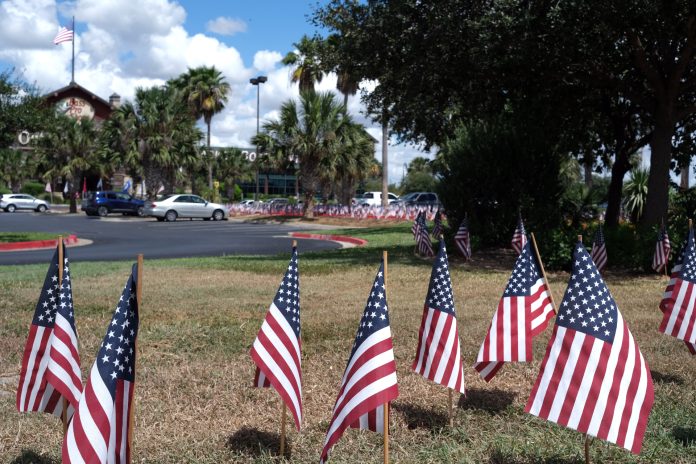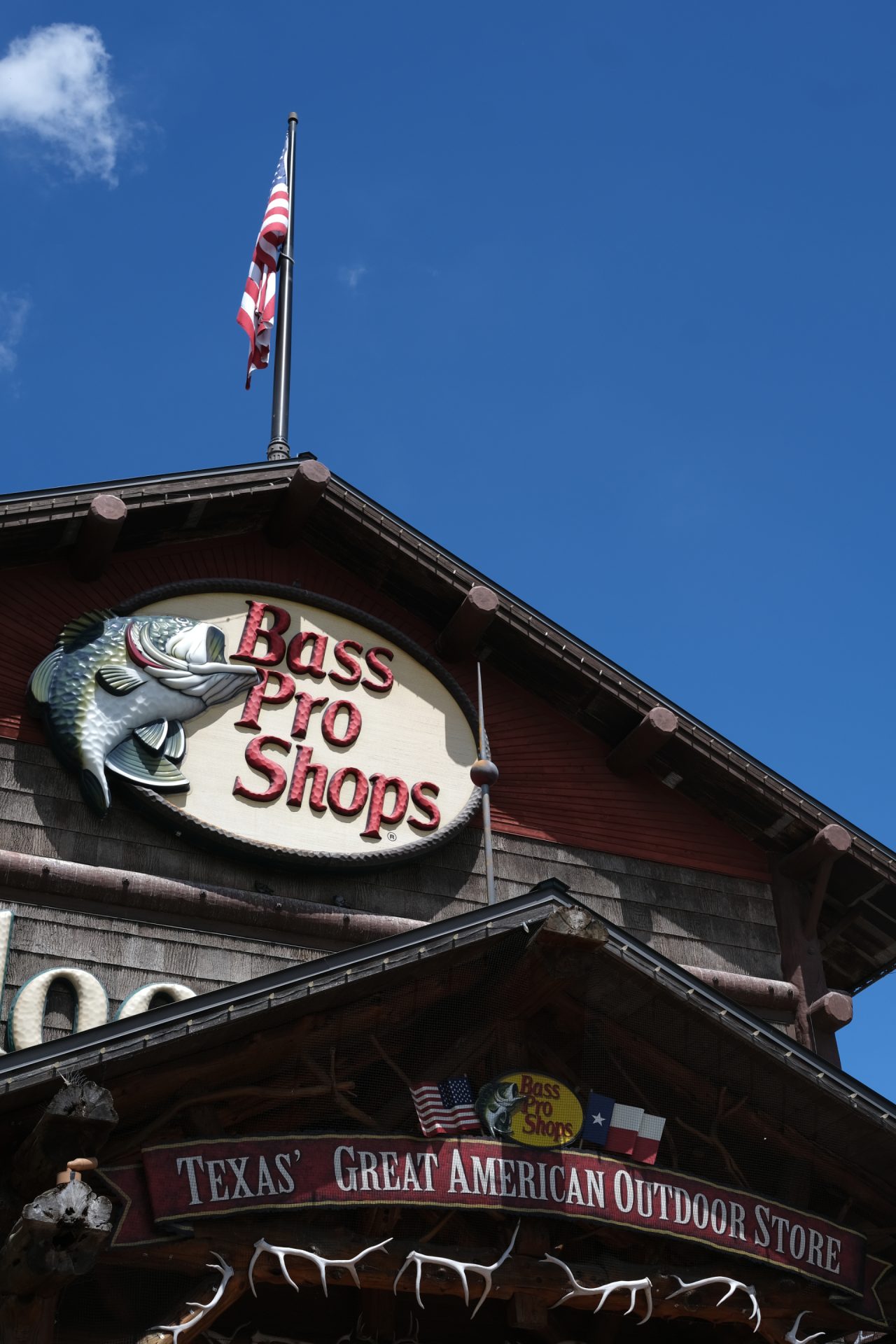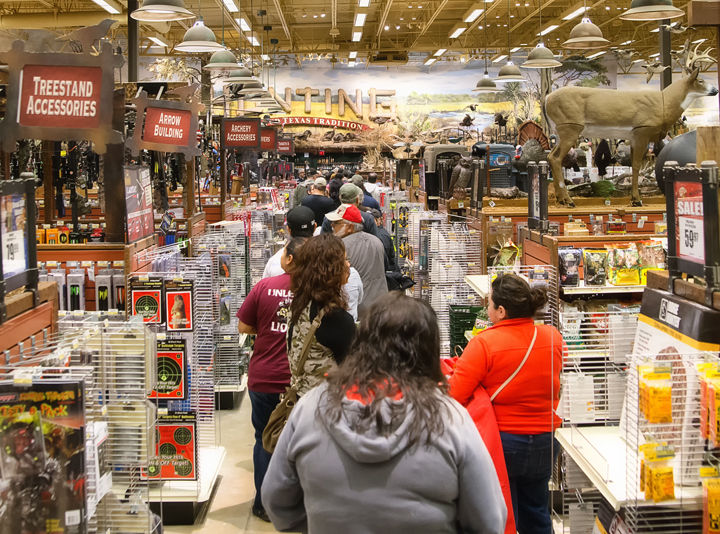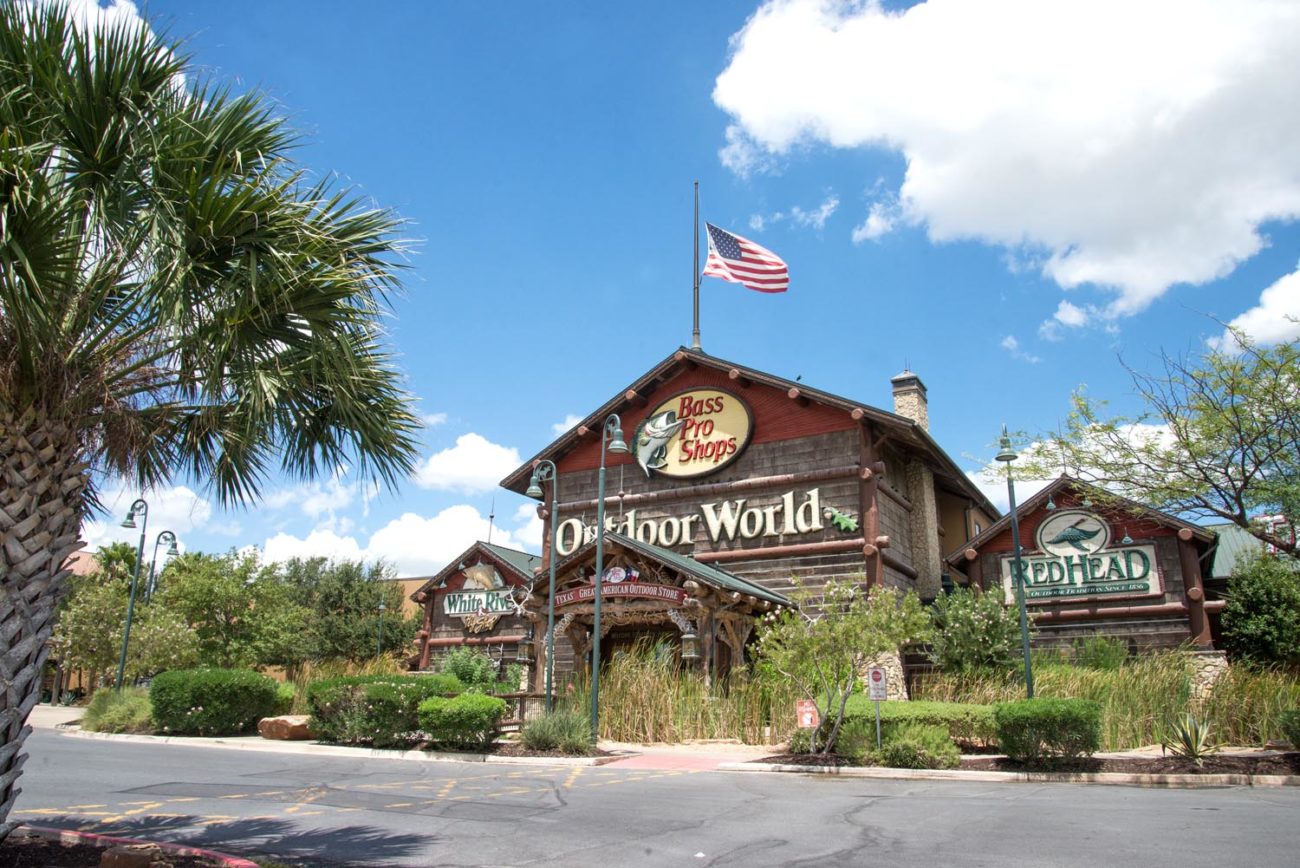
|
Only have a minute? Listen instead
Getting your Trinity Audio player ready...
|
HARLINGEN — Nearly 15 years after city leaders landed Harlingen’s biggest retail store deal, Bass Pro Shops is boasting its biggest year here as officials work to pay off debt surrounding the multi-million dollar project that’s helping develop the new Cameron Crossing business district.
Today, Bass Pro Shops, hailed as America’s leading outdoor retailer, is putting Harlingen “on the map” as a top hunting, fishing and boating destination, Orlando Campos, the Harlingen Economic Development Corporation’s chief executive officer, said.
At the EDC, officials continue paying off $31 million in sales tax revenue bonds used to build Bass Pro Shops’ sprawling complex under the Interstate 69 interchange.
Now, the agency’s making annual payments of about $2.3 million on the remaining $18.1 million debt, aiming to close it in 2032, Campos said.
“For Harlingen, it seems like a great investment,” he said.
In 2010, city leaders were working to draw Bass Pro Shops to serve as a shopping destination, an anchor capable of helping develop the new Cameron Crossing business district.
“The store is the catalyst for all the development you see there now,” Campos said in an interview. “In a sense, the area will become a small entertainment district, which ultimately enhances the quality of life here in our community.”
Bass Pro Shops, the country’s leading hunting, fishing and boating outfitter and the world’s largest-volume boat dealer, has become a South Texas regional attraction.
“It’s a destination retailer,” Campos said. “Bass Pro Shops draws not only from the Valley, but from Corpus and as far south as Monterrey, Mexico. The store itself has a reputation across the country — if you want to go to a store that has everything you need to enjoy the outdoors, it’s Bass Pro Shops.”
At the Valley’s crossroads, the Cameron Crossing business district is growing, drawing 7% more visitors than last year, while Walk-Ons Sports Bistreaux opened earlier this month, he said.

Last year, he said, Cameron Crossing drew more than 1.7 million visits, and 630,000 visitors, not including international visitors.
“It made a huge impact on the city, right there at our interchange,” former Mayor Chris Boswell, who helped drive the deal, said, referring to Bass Pro Shops. “We accomplished what we wanted to accomplish — that was having a signature, unique national retailer here in the city of Harlingen.”
Nearly 15 years later, Boswell describes the deal that landed Bass Pro Shops as “the biggest retail project that Harlingen’s seen, certainly Cameron County’s ever seen.”
In 2010, his administration was working to bring development to town, aiming to boost the city’s annual sales tax collection, which was standing at about $17 million, Boswell said.
“Get a better perspective of what this city was like back then,” former City Commissioner Kori Marra, a real estate broker, said in a statement. “We had a Chili’s and an Applebee’s. We struggled each year with the budget and were unable to purchase one fire truck for the fire department, much less anything else. The landscape of Harlingen and the adjacent cities has changed for the better due to that interchange being developed.”
At City Hall, officials were searching for a national retailer known as a shopping destination, an anchor capable of drawing development to town.
At the time, Bass Pro Shops, a growing Springfield, Missouri-based company, was billing itself as a top fishing and hunting retailer, sporting sprawling elaborate stores.
So city leaders were looking for a selling point.
That’s when the Harlingen Area Chamber of Commerce’s economic development department found statistics showing the Valley was issuing more fishing and hunting licenses per capita than anywhere else in Texas “by a huge margin,” Boswell said.
“That’s what caught Bass Pro’s attention,” he said.

For about two years, city officials worked to develop a deal that would bring the company to town.
Then on Dec. 11, 2010, commissioners unanimously voted to approve the deal.
“This wasn’t a decision we made lightly,” Marra said. “We did our due diligence. We all looked at this deal and made decisions based off of what other cities had done. We were not the first city to make a deal like this with BPS and a landowner — and it was working elsewhere.”
As part of the deal, officials agreed to fund the construction of Bass Pro Shops’ 150,000-square-foot building.
So the EDC borrowed $31 million at an 5.89% interest rate through the sale of sales tax revenue bonds.
Through the bonds’ 20-year term, they were projecting to pay $24.7 million in interest.
Then in 2019, the EDC refinanced the bonds, cutting about $400,000 off its annual payments.
In November 2011, Bass Pro Shops opened its Harlingen store featuring lavish rustic showrooms, a restaurant, bowling alley and massive fresh-water and salt-water aquariums, part of its sprawling natural history theme.
During the project’s first stages, gross sales were estimated at $30 million, a Valley Morning Star story published in September 2012 reported.
At the time, EDC reports showed the store falling short of estimated annual gross sales of $25 million, the Star reported.

Meanwhile, the EDC’s budget was projecting Bass Pro Shops to make $1.2 million in rental payments and new sales tax revenue.
During the 2011-2012 fiscal year, the city first budgeted the store’s rent payment at $875,000 before downscaling payments as low as $600,000.
The company’s rental payments, based on monthly sales, fluctuate monthly, Campos said.
Following the store’s opening, “they were holding a little steady, then we noticed a decline in sales starting in 2016 and 2017,” he said. “Then they were steady for 2018 and 2019.”
Then in 2020, when the coronavirus pandemic hit, “they did extremely well in sales and have continued to exceed previous sales since,” Campos said.
In the last few months, the store’s posted its biggest sales tax collections, he said, adding he couldn’t disclose the confidential revenue data.
“That was the highest amount of sales they ever had since they opened here in Harlingen,” Campos said. “This year looks very good as well for the store.”
In 2010, the city’s deal was tied to an agreement with the company 83/77 Properties, owner of the tract on which Bass Pro Shops’ store would be built, along with surrounding land on which the developer would sell lots drawing new businesses.
As part of the deal, the city put down $4.4 million, financing the principle at an 8% interest rate.
Under the agreement, 83/77 Properties agreed to sell lots, drawing businesses.

The 360 agreement called on the city to pay back its debt using sales tax revenue generated by the new businesses.
Within the first couple of years, the developer drew an AT&T store, a Hooters restaurant, Longhorn Steakhouse and Cracker Barrel.
Then development appeared to stall.
“The way it was structured didn’t allow us to make a dent in the debt,” Campos said in an interview.
Last December, the city’s current administration filed a lawsuit against 83/77 Properties, arguing the developer failed to draw enough businesses to allow the city to pay off its debt.
During a 14-year period, the city paid $2.3 million, with its debt swelling to $6.39 million, City Commissioner Daniel Lopez said in a statement released last month.
Late last month, the city and 83/77 Properties entered in a settlement agreement.
Under the settlement, the city and EDC agreed to pay their portions of the $4.4 million principle in one lump sum, Lopez said.
Meanwhile, the city and EDC agreed to pay the remaining balance, exempting $500,000, which 83/77 Properties waived, he said.
Under the agreement, he said, the remaining interest debt of $1.48 million will not accrue additional interest.
Now, officials expect to pay off the debt within three to four years, he said.



